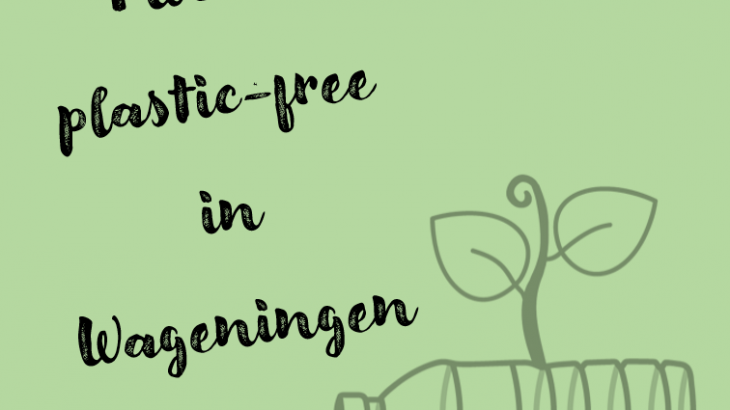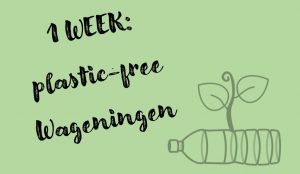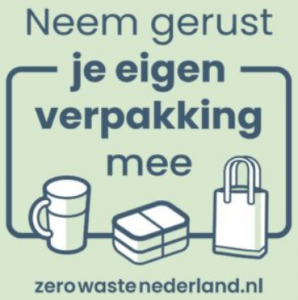Did you know that one person in Europe produces about 30kg of plastic a year (1)? If we calculate this up to an average lifetime in the Netherlands of 80 years, this is 2480kg of plastic! Sure, this varies a lot in your younger years but still it is an impressive number. And it is made to last: 450-1000 years to be precise (2). You might say yes this sounds bad, but we live in the Netherlands and here we recycle our plastic. I thought so too but my journey to find out how much plastic actually gets recycled led me through an abundance of different vague numbers that not only strongly depend on the area you live in but also the source that provides the information. The Volkskrant states for example that 85% of the plastic trash is recyclable and the way the trash is reused strongly depends on the municipality (3). If we look at general sources for the EU only about 10-40% of the plastic gets recycled (4). Green Peace Netherlands provides even worse numbers with more than 90% of all plastic products that are never recycled. They also say that even if plastic is recycled it is often down cycled, meaning that it is turned into a product with lower quality until it ultimately ends up being burned (5). And all the plastic that cannot get recycled gets burned, ends up in landfills or in the very worst case in the environment.
Reading through these facts, raised some serious concerns when looking at my PMD bag that fills up every week in no time when I do my grocery shopping in Albert Heijn, Jumbo, Lidl or Hogevliet. I am a sustainably minded person. I know about the plastic soup issue, the amount of micro plastic in the oceans, including the Dutch waters (6) and that there is a garbage patch of three times the size of France floating in the Pacific Ocean (7). One might think that learning about these facts should have caused me to jump to action but for some reason I have been hiding for the longest time behind blaming the government for failing its responsibility to regulate plastic. Or I blamed the big companies for not switching to less or alternative ways of packing their products. At the same time, I continued shopping and became more and more frustrated about every biological cucumber or individual paprika that was wrapped in plastic.
It took a course in the 4th period of this year, Empowerment for Sustainability, that really spelled out the plastic issue in my life for me. In the run of the course you learn a lot about sustainability and how you can empower yourself to be an agent for change. It took me no time to decide that my personal sustainability project needed to be aimed at reducing the amount of plastic in my life. Since it is a short course there is no time for any big projects, so I decided to challenge myself to avoid plastic for one week. What first seemed daunting to me turned out to be a fascinating journey down a road of meeting super inspiring people who live waste free, create and support initiatives that make it easier for other people to reduce the amount of packaging in their lives and discovering that I can also be an agent of change. I am looking forward to sharing my experience with you but please don’t forget I have only done a week so there will be parts that I will not be touching upon because I have just not had the need to use certain items.
My first experience when preparing for the week was that I really needed to plan ahead. Last minute, ‘I am super hangry’ grocery shopping’s were not going to be possible since the plastic free food items are spread like in a treasure hunt over the different supermarkets. So, I first started to write up a meal plan, considering which items I could purchase. My initial panic that I was only going to eat potatoes and veggies for 7 days disappeared after I found out that there is rice (even different varieties) and spaghetti in carton packaging in Hogevliet. Veggies and fruits as well as nuts are with some limitations plastic free to be bought on the Market or ‘Foladi Groenten & Fruit’ opposite of Albert Heijn. During my preparation for the week I stocked up on cloth bags for my veggies, which can be bought in nearly every supermarket. Bred I also bought on the Market and the stand on the Saturday market also offer bred bags which you can reuse.
During my preparations for the week I also learned about a very handy initiative that is already in place in Wageningen. You might have seen them before the ‘neem gerust je eigen verpakking mee’-stickers (‘Just take your own packaging’-stickers). They are found at the door or in the window of local shops where you can bring your own container and fill it in the shop with herbs, sweets, tea and other items and this way reduce the amount of waste used for packaging.
If you want to find out more, check out https://wageningenduurzaam.nl/wageningenwinkeltduurzaam/ and you will find an overview of the shops that are participating. The stickers are from Zero Waste Nederland, which also has a lot of handy tips on how to live waste free.
There was one item I did unfortunately not find anywhere in a plastic free packaging which is plant-based milk. It is everywhere sold in tetra packs which consist of a mixture of carton, plastic and aluminium foil (8). So, as a last resort I found a recipe of how to make oat milk myself. I was positively surprised how easy it is and closely resembled the one you buy in the supermarket. Unfortunately in the coffee I could taste the difference and stuck to black coffee for the rest of the week. Using it in my breakfast shake was however an exciting discovery because it is of course much cheaper to make yourself since you only need water and oats.
When it comes to other items such as cosmetics or household materials, the Saturday market has another helpful stand in its offer. A super nice woman sells shampoo and soap bars, toothpaste tabs, bamboo toothbrushes and even offers the possibility to refill your washing liquid so that you do not have to buy a new bottle every time yours is finished. Body lotions and other body care products can be bought for example from LUSH without packaging (9)
Reading up more on living plastic free I also discovered a whole world of making your own cosmetics and household goods. Unfortunately, due to time limitation I couldn’t really get into this topic.
The week flew past in no time and I found myself reflecting on it, Sunday afternoon. I can say with confidence that it was a great experience to get sensitized for the issue at hand and I will definitely continue using the tricks I found on how to reduce plastic in my own life. I think living plastic free has very much encouraged me to spend more time thinking about what I will be eating and therefore I cooked healthier and used less ready-made products. I do see however issues of strictly living plastic free in the long term. Most medicine and supplements are packet in plastic and sometimes you end up in weird dilemmas such as not buying a fair-trade product because it is wrapped in plastic.
Although I discovered my role as an agent for change during this little project, I still believe that we are quite limited as individual consumers in our choice (10 & 11). Therefore, I hope that eventually binding instead of voluntary agreements for companies to reduce plastic will come in place (12). And maybe Green Peace will be successful in convincing companies such as Unilever and Nestlé to use recyclable plastic or generally reduce the amount of packaging (13).
But until this happens, looking away is no longer an option for me. When you face the issue and look for solutions, I promise you will find that you are not alone. There are so many wonderful people out there that already live this change and initiatives are becoming more and more that will support you. It is not about forcing yourself to live the extremes. Do as much as is possible for you! And sooner or later a group of people will form that shares the same values. And this leads me to the great quote of Margaret Mead:
“Never doubt that a small group of thoughtful, committed, citizens can change the world. Indeed, it is the only thing that ever has.”
― Margaret Mead
So we make the choice: Do we want to be part of this group or not?
By: Sonja Greil


